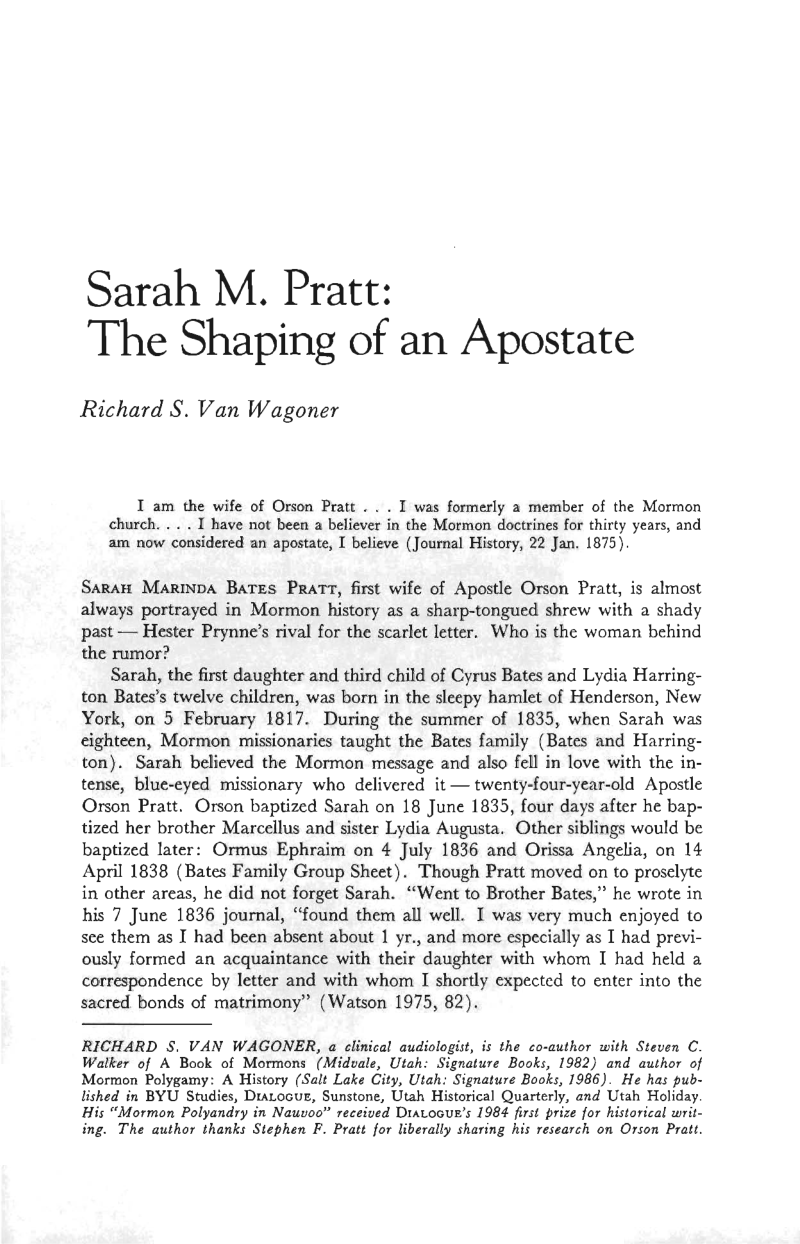Richard S. Van Wagoner writes on the scandal involving Sarah Pratt, Orson Pratt, Joseph, and John C. Bennett.
- Type
- Academic / Technical Report
- Source
- Richard S. Van Wagoner DisaffectedCritic
- Hearsay
- Secondary
- Reference
Richard S. Van Wagoner, "Sarah M. Pratt: The Shaping of an Apostate," Dialogue: A Journal of Mormon Thought 19, no. 2 (Summer 1986): 69–99
- Scribe/Publisher
- Dialogue: A Journal of Mormon Thought
- People
- Richard S. Van Wagoner
- Audience
- Reading Public
- Transcription
Perhaps history has dealt with Sarah M. Pratt unjustly. Had she lived in a monogamous world, she would likely have been less controversial. But polygamy made her a radical. Her disclosure of plural marriage in Nauvoo was brushed aside as the self-vindication of an unfaithful wife. Corroborative evidence now available, including testimony from other married women that Joseph Smith approached, tends to support Sarah's story. The decision of Church leaders to keep plural marriage hidden until 1852 posed a serious moral dilemma for the few who were aware of its practice. In Nauvoo, protecting the practice of plural marriage from public exposure, especially to hostile gentiles, was a greater virtue than telling the truth. By making public Joseph Smith's overtures and resisting what she considered to be collective infidelity, Sarah Pratt was judged a threat to the safety of the Church and considered to have committed apostasy.
- Source Link
- https://www.jstor.org/stable/45225431
- Citations in Mormonr Qnas
The B. H. Roberts Foundation is not owned by, operated by, or affiliated with the Church of Jesus Christ of Latter-day Saints.

